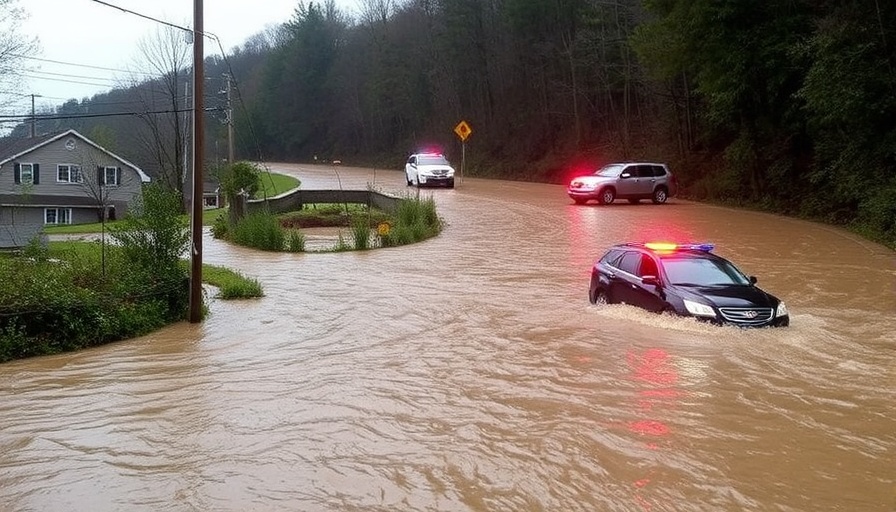
Trump's EPA Makes a Controversial Move on Environmental Justice Grants
The recent decision by the U.S. Environmental Protection Agency (EPA) to cancel 781 environmental justice grants awarded under the Biden administration has sparked significant concern among communities relying on this funding. Originally announced in an underreported court filing, this marks a substantial increase from the anticipated number of cancellations and raises serious questions about the future of environmental justice initiatives across the country.
Understanding the Impact of Canceled Grants
These grants were intended to support critical projects aimed at helping vulnerable communities tackle the consequences of climate change, which disproportionately affect low-income and marginalized groups. Projects including coastal flood protection for Alaska Native villages and methods to reduce wildfire smoke exposure in Washington state illustrate the urgent need for these resources. The loss of funding signals a troubling departure from prioritizing environmental justice in policy-making, leaving these communities scrambling to find alternative sources of support.
Legal Ramifications and Concerns
At the heart of the matter lies the legal battle surrounding these cancellations. The EPA's deputy assistant administrator, Daniel Coogan, stated that the agency had performed an "individualized, grant-by-grant review" before deciding on the cancellations. Yet, legal experts and advocates have raised doubts about the transparency and legality of this review process, with some asserting that the EPA misled the court about its practices. Jillian Blanchard, vice president of climate change and environmental justice at Lawyers for Good Government, pointed out the lack of evidence that any such reviews were conducted.
Shifting Priorities at the EPA
Additionally, the cancellation of these grants coincides with the Trump administration's ongoing plans to shut down the EPA's Office of Environmental Justice and External Civil Rights, which played a key role in distributing these funds. With reports indicating that over 450 employees dedicated to diversity, equity, and environmental justice may be reassigned or fired, this decision raises alarms about the administration's commitment to addressing critical environmental issues affecting marginalized communities.
The Broader Context of Environmental Justice
The termination of these grants not only affects immediate projects but also reflects a broader trend in environmental policy that prioritizes other interests over sustainable practices and community resilience. As housing decisions increasingly intertwine with environmental outcomes, homebuyers and property investors must be aware of how these administrative choices can impact property values, community desirability, and overall quality of life.
The Role of Communities and Future Recovery
The outcome of these potential cuts will ultimately hinge on community responses. Local officials and advocates are mobilizing to challenge these decisions, emphasizing that investments in environmental justice are investments in public health and safety. A collective pushback from communities impacted could advocate for legislative changes that restore, protect, and enhance funding for environmental initiatives, illustrating the power of grassroots organizing.
How You Can Stay Informed and Get Involved
For homebuyers, sellers, and property investors, understanding the local implications of federal policies on environmental justice can provide valuable insight when making property decisions. Engaging with local advocacy groups or staying updated on environmental initiatives in your area can enhance your understanding of how such shifts affect housing landscapes. In a time when eco-consciousness is crucial in residential decisions, your involvement could provide critical support to the communities that need it.
In conclusion, the current cancellation of EPA grants for environmental justice raises numerous questions about the future direction of the agency and its commitment to addressing the environmental realities faced by vulnerable populations. As we navigate these challenges, staying informed and engaged is essential for creating sustainable, thriving communities.
 Add Row
Add Row  Add
Add 





 Add Row
Add Row  Add
Add 








Write A Comment